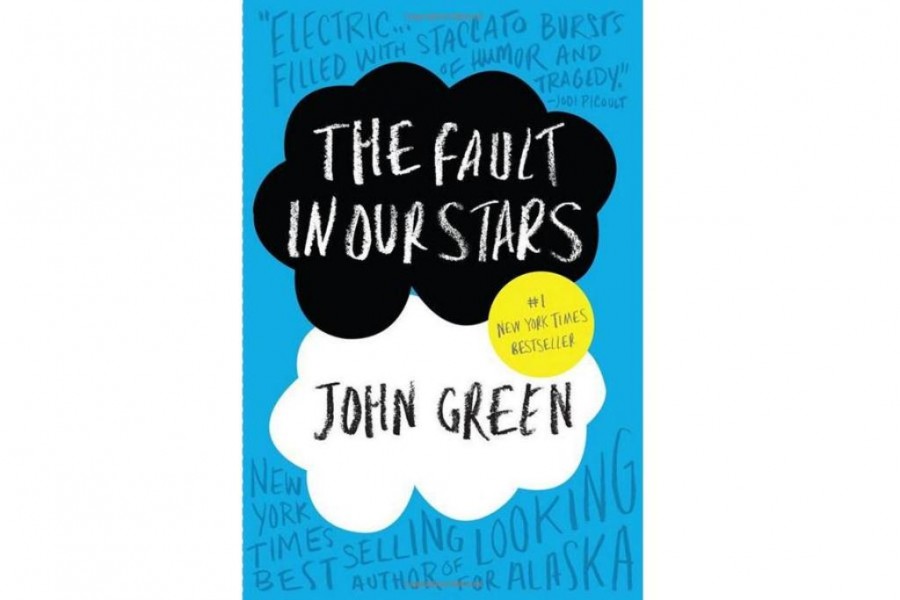Amirah Ahmad
When done badly or awkwardly, a love story can make you so confused you don’t even know what to feel. The major problem with TFIOS isn’t that it’s poorly written. The problem is that hardly anyone at Langley can relate to Hazel Grace or Augustus Waters.
Augustus Waters and Hazel fall in love with each other at first sight. This doesn’t happen in the real world.
Did you fall in love with that girl/guy in your math class immediately after you saw them? Chances are you didn’t.
Second, the many complicated exchanges of words between the two lovebirds are also unrealistic. The point of a Langley Read is to have students read a book over the summer that they’ll still be talking about until next June.
Take “Unbroken” by Lauren Hillenbrand, last year’s Langley Read, for example.
Teachers were putting up posters on their doors with inspirational quotes from the book, and the assembly last December about the wounded soldier sparked a connection between the students and the soldier standing up on stage.
With the “Fault in Our Stars”, however, all I’ve heard was that it was a good book. Nothing else. There are countless books that are “good,” but few that can inspire.
Langley Reads need to be the ones that inspire.
Riley Cosgrove
Surrounded by a sea of used tissues and ice cream, I finished the Langley read, John Green’s “The Fault in Our Stars”.
I cried for Hazel and Augustus and for myself because of how perfect and fictional the character of Augustus Waters is.
Will my Prince Charming come running (er, limping) to sweep me off my feet? No. Would I be able to live normally and accept the reality of death as a teenager?
No. At first glance, Hazel and Augustus seem to be impossibly fictitious characters. But as I have not had to face death or to deal with a terminal illness, who am I to judge whether these characters are unrealistic when I do not know what realistic in these circumstances is?
The plot of the Langley Read does not need to directly relate to the student body.
Who among us has ever been lost at sea for months like Louis Zamperini in “Unbroken”? However, the message within the novel does need to relate in some way to all of us, and I think it does.
The main idea in the novel is that we are all dealt a specific hand of cards in life, some good, some bad.
What you do with the cards you are dealt is your choice, but the dealing is absolute. I think all of us at Langley can relate to this message of being cursed, or blessed, with certain challenges, and being forced to make a decision: to live the life you’ve been given, or to fight it unsuccessfully.
Brendan Coffey
The fault in “The Fault in Our Stars” was evident as soon as I finished the first chapter. The book was obviously written for female readers.
From the moment Augustus walked into the support group and Green described him as a “hot guy,” I could tell where this was headed.
Of course Hazel and Augustus were going to wind up together, of course they would get the trip of their dreams, and of course one of them would die, only to leave behind a note just for their loved one.
That’s the predictable genre of romance, with all of its sappy kisses and hugs. I don’t have a problem with a little romance seeping in, but I couldn’t stand an entire 313 pages of a rewritten Cinderella.
I also felt that the author could’ve gone more into the struggle with cancer and how it affected Hazel’s life, or at least another topic that’s appealing to both boys and girls.
I appreciated his attempt to draw guys with few pages about video games, but in the end, when everyone was sobbing their eyes out; his effort was to no avail.
I’m not a heartless monster, but it was predictable in the sense that I might as well have started tearing up right when Augustus was introduced into the story.
Abdullah Jamil
I am not a huge reader. I can prove this to you by admitting, honestly, that TFIOS is the only Langley read I have read.
Before I abandoned ship on “Unbroken,” last year’s Langley Read, I struggled page by page much like Louis Zamperini struggled during his time as a Japanese POW (I Googled this).
However, TFIOS was a different experience for me. First off, John Green writes for a teenage audience. Green uses slang, curse words and popular culture references that make me feel like the book was written for me to actually want to read it.
I’m not saying that I enjoyed the book just to pick up chicks (but if anyone wants my number, you can find me in room 114 sixth period). I actually think that there is a lot to be learned from the story and from the way that Green writes.
Despite cancer, Hazel and Augustus are still normal teenagers. Challenges come up in life that cannot be overcome sometimes, and the main characters accept this. I know a lot of guys didn’t read the book, and I get it.
But I think that aside from the girly romance parts, it is a good book. And it will help you pick up chicks. Mention the name Augustus and you’re set.


